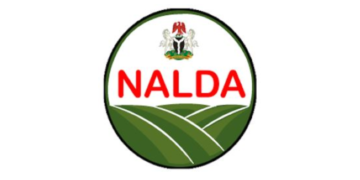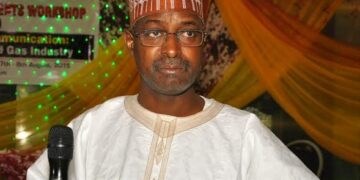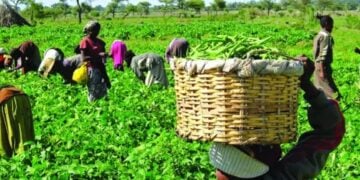HortiNigeria and the Nigeria Incentive-Based Risk Sharing System for Agricultural Lending (NIRSAL) have collaborated to de-risk agricultural finance and bridge the gap between potential and investment in Nigeria’s underfunded but high-yield horticulture sector.
At a four-day capacity-building programme for financial institutions yesterday in Abuja, both the minister of agriculture and food security, Abubakar Kyari, banks, policymakers, agribusiness leaders, and development partners noted the need to bridge the financing gap in horticulture, a subsector often deemed too risky by lenders.
The minister urged financial institutions to prioritise investment in the horticulture sector, describing it as a high-impact, high-return driver of food security, employment and economic growth.
Kyari called on financial institutions to map the horticulture value chain, from seedling production to export and to design custom financial products such as seasonal loans, equipment leasing, and trade financing.
At the opening session, HortiNigeria’s programme director, Mohammed Salasi Idris, emphasised the significance of demystifying the sector for bankers.
“Financing to the agricultural sector has been very difficult, and for horticulture, it’s seen as even riskier, but it’s actually a profitable sector, and we hope that after this training, banks will be better informed and more willing to finance horticulture, especially the vegetable value chain,” Idris stated.
The HortiNigeria programme, funded by the Dutch government, is now in its third and a half year. It operates in Kano, Kaduna, Ogun, and Oyo states, with the Lagos market as a key target.
Idris highlighted that despite insecurity challenges that have displaced farming in parts of the North, the programme innovates with improved seed varieties, greenhouse technologies, and youth empowerment across the South and North.
Managing director and CEO of NIRSAL Plc, Sa’ad Hamidu, who delivered the keynote address titled “De-risking and Funding Mechanisms for a Rewarding and Sustainable Horticulture Sector”, stressed the mismatch between agriculture’s contribution to Nigeria’s GDP and the fraction of bank lending it receives.
“Agriculture contributes about 24 percent to Nigeria’s GDP but receives only 4 percent of total lending. This is not sustainable. Financial institutions must stop seeing horticulture as a high-risk venture and start seeing it as a profitable investment with the right risk management frameworks in place.
“Our mission has always been to fix broken agricultural value chains, reduce financing risks, and stimulate lending. We’re saying to banks: you don’t need to be afraid—with the right tools, horticulture can be a viable business,” Hamidu noted.
Hamidu highlighted NIRSAL’s role in bridging this divide through tools like Credit Risk Guarantees and Value Chain Mapping, noting that as of Q1 2025, NIRSAL has facilitated over N1.23 trillion in agricultural lending.
Representing the Dutch government, Foluso Adejoro, policy advisor for food security and climate at the Netherlands Embassy in Abuja, shared insights into the increasing interest of the Dutch private sector in Nigeria’s horticultural and potato value chains.
Representing the Netherlands Embassy, Foluso Adejoro, Policy Advisor for food security and climate, detailed agribusiness investors’ interest in exploring opportunities in Nigeria’s horticulture and potato sectors.
“Last year, we had 11 Dutch agribusinesses participate in Lagos’ agri-food fair; this year, that number increased to 16, and companies like East West Seed and Baker Brothers are already active here. Others are just exploring the market. We’re hopeful these partnerships will mature into long-term investments.”
“We’ve seen up to 200 percent yield increases in the southwest because of innovations like protected horticulture. Dutch companies are ready to bring in seed technology, cold storage solutions, and greenhouse systems,” Adejoro stated.
He said the HortiNigeria programme has trained over 70,000 farmers, leading to significant yield improvements.
Delivering his welcome address, the country director of the International Fertiliser Development Centre (IFDC), Dr Yusuf Dramani, noted that the solution to horticulture underfunding lies in equipping financial institutions with the right insights and risk mitigation strategies to transform existing challenges into viable investment opportunities.
“This training is not just timely, but strategic. It will help participants better understand the operations, dynamics, and opportunities across the horticulture value chain from production to marketing, aggregation, processing, and logistics.”





